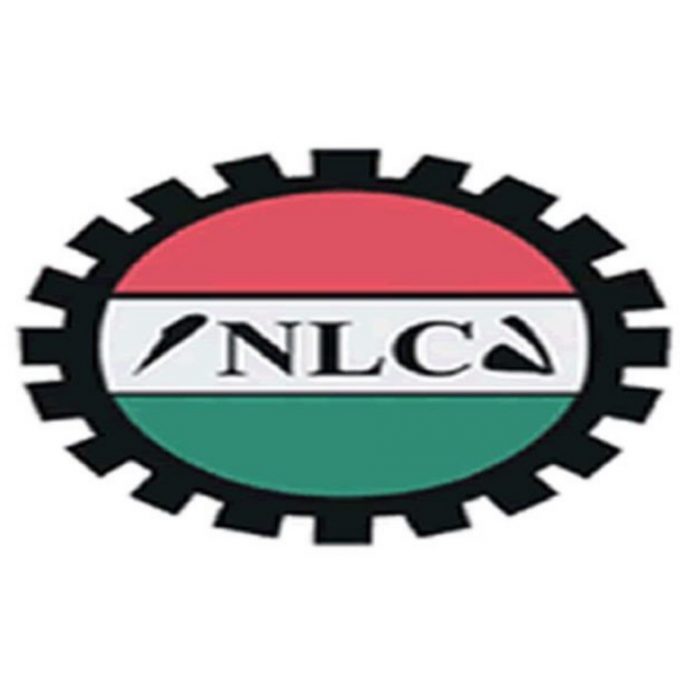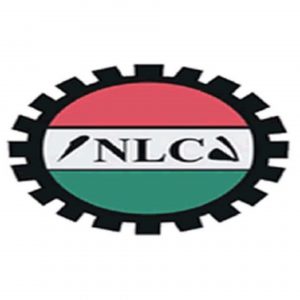NLC logo
By Victory Oghene
The Nigeria Labour Congress (NLC) has advised the federal government to enbrace programmes that will cushion the effect of hardship on its citizens. The NLC also condemned the government’s handling of key economic issues and threatened industrial action in states refusing to implement the new national minimum wage.
Rising from its National Executive Council (NEC) meeting held in Port Harcourt last week, the president of the Congress, Comrade Joe Ajaero, highlighted the worsening hardship on Nigerian workers. The NLC’s stance signals a rising wave of discontent that could intensify if demands are not met.
Comrade Ajaero emphatically aired NLC’s displeasure against the deteriorating state of the economy, expressing concern over escalating inflation and the inability of millions of Nigerians to afford basic necessities.
He decried the state of nutrition in Nigeria, where diseases like kwashiorkor have re-emerged due to widespread poverty and malnutrition.
“Workers are forced to make impossible choices between food and healthcare,” Ajaero stated. The NEC calls for immediate government intervention, including comprehensive social protection policies that provide a living wage, affordable healthcare, and food security.
The Congress further denounced what it described as a deliberate pricing manipulation in Nigeria’s petrol market, which has seen prices climb beyond what should be justified.
According to Ajaero, “fat cats” in the oil industry have been padding costs, creating artificially inflated prices that keep Nigerian workers and consumers in a stranglehold.
The NLC urged the government to reactivate public refineries and break the monopoly of powerful players to reduce petrol costs and end market manipulation that burdens the populace.
Against non-compliance with the new minimum wage in some states, the NLC issued a December 1 deadline for states to implement the 2024 National Minimum Wage Act.
Some governors have resisted enforcing the law, an act Ajaero called “a betrayal of both legality and morality.”
The NEC vowed to commence strike actions in any state that fails to comply with the minimum wage mandate by the end of November. “We will mobilize our forces in every non-compliant state,” said Ajaero, “and we will not relent until every worker receives their rightful wage.”
The communiqué also addressed the military’s presence at the Oritsetimeyin Oil Rig, calling it a blatant act of intimidation against workers. NLC leaders demanded an immediate withdrawal of troops and condemned what they perceive as a growing militarization of workplaces in Nigeria.
The congress called for the reinstatement of workers displaced from the rig and urged the government to honor previously signed agreements, emphasizing that an assault on any workplace is an assault on Nigeria’s workforce.
Ajaero expressed strong support for Rivers State amid political maneuvering that has resulted in the freezing of its federal revenue allocation. This action, he warned, risks destabilizing governance and threatens the livelihoods of workers. The NLC declared solidarity with the state and cautioned that it will not tolerate politics that jeopardizes workers’ welfare.
“Separate politicking from existential issues,” Ajaero stressed, adding that workers would escalate their response if Rivers State’s finances are not restored.
The communiqué further expressed the NLC’s appreciation for the federal government’s provision of Compressed Natural Gas (CNG) buses to alleviate commuting costs.
However, the Congress insisted that the current number of buses is inadequate and that infrastructure deficits undermine the CNG program’s potential. The NLC urged the government to deploy more buses and develop refueling facilities nationwide to make affordable transportation accessible for all Nigerian workers.
While the Congress praised President Bola Tinubu for recent interventions, it urged him to ensure the immediate release of all remaining protesters and enact safeguards to prevent future rights violations.
“The freedom to organize, associate, and dissent is under threat,” Ajaero asserted, noting that the Congress will resist any further encroachments on these freedoms.
As the meeting drew to a close, the NLC President emphasized the Congress’s readiness to confront these challenges head-on. He assured Nigerian workers that the NLC remains committed to their well-being and dignity, calling on the government to heed their demands or face broader, more disruptive action. “Our resolve is unshakeable,” Ajaero warned, “and we demand a Nigeria where workers are respected, their rights upheld, and their futures secure.”
The resolutions from the NEC meeting underscore a crucial inflection point for Nigeria, as the labor movement sharpens its focus on issues affecting the economic, political, and social well-being of workers. With threats of strikes and intensified mobilization looming, the coming weeks will test the government’s response to these urgent demands.


